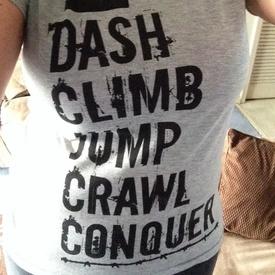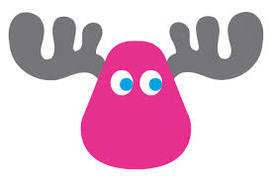Stop With the Muscle Weighs More Than Fat Myth...
Replies
-
Since this is a completely useless thread anyways, let me interject that the gram (or kilogram) is not a unit of weight. It is a unit of mass. The proper metric unit of weight (force) is the Newton.
BTW, the Imperial unit of mass is the slug.
See, I can be even more pedantic than just about anyone!
And I assume you know that the force of gravity differs over the surface of the earth such that your weight at sea level the equator would be different than your weight in Colorado.
So to sum up this useless topic, a kg of muscle at the equator will weigh less than a kg of fat at the North Pole.0 -
Water weighs more than air.
Argue about mass and density all you want, but there is a reason it snows.
To quote the Met Office:
"Snow is formed when temperatures are low and there is moisture - in the form of tiny ice crystals - in the atmosphere.
"When these tiny ice crystals collide they stick together in clouds to become snowflakes. If enough ice crystals stick together, they'll become heavy enough to fall to the ground."
Take a kilo of snow. Drop it through several thousand kilos of air. Why does it fall? Because it is "heavy enough to".
Until someone deletes from human brains things such as wet air being heavier than dry air, or wet clothes being heavier than dry clothes, or me with a 50" waist being heavier than me with a 32" waist, or oil being lighter than water, I shall assume some things are not measured by the kilo when talking about "heavier" - if it were, a morbidly obese person would "weigh the same" as someone who weighs 60 pounds (or a squirrel... obese people weigh the same as squirrels).0 -
Ok I'm so sick of hearing this... 1 pound of muscle weighs the same as 1 pound of fat. A pound of anything is the same as a pound of something else. 1 pound of feathers weighs the same as 1 pound of lead. The laws of physics/math still apply in the fitness world.
Now if you talk about volume or size... then yes one thing has more volume than the other. Muscle is much more compact and dense versus fat, so while yes pound for pound they 'weigh' the same, a pound of fat is larger in volume than a pound of muscle.
Another annoying thing I hear... "You are turning the fat into muscle." Umm no you aren't. Stop telling people this. LOL
/end rant
No it doesn't. Youre wrong and that's that.0 -
Do you really think that anyone who says "muscle weighs more than fat" is trying to convince you that 1 lb of muscle weighs more than 1 lb of fat? It is a GIVEN that they are speaking in terms of volume.
Yeah...I always thought that was a "you understood" statement. apparently not.0 -
this should get a nomination as 'most useless thread ever'0
-
Ha! This! You (kind of) have a point. Though I have never heard anyone say "A pound of muscle weighs more than a pound of fat". Ever. The phrase is "Muscle weighs more than fat" and is used to comfort someone who is exercising and not dropping weight and volume is implied. It's like how it is normal to say that you bought something on Amazon without saying the "www" or ".com". When something has been around for this long, it doesn't need to be explained any more. It's more annoying that the phrase would be used to coddle people who aren't doing anything to earn muscle, thus rendering the phrase useless.You've been on here all of 4 months and *you* are sick of it already?0 -
I have nothing else to add. I'm only here for the popcorn.

Oh, and also: 0
0 -
For someone to say it correctly all the time, you have to be a nerdy dork. Everyone knows WTF everyone means, and to point out their error, means you are a nerdy dork, or you think you know more and are better than everyone else. Get off it, and get real. You know what they mean. I hate this topic more than anything. That's it. I'm leaving now.0
-
this should get a nomination as 'most useless thread ever'
Not even close.0 -
this should get a nomination as 'most useless thread ever'
Not even close.
they get worse?0 -
OH BOY...next you're going to tell us "Lose" and not "Loose"?
 0
0 -
As long as thisch isch the thread where we try to out-pedant-ify each other, one schquare inch of muschle would not have a third dimenschion **fixes glasses** and would thusch have a volume of zhero, and thusch wouldn't weigh anything! he he he he **snort snort knee slap**1 pound of muscle weighs the same as 1 pound of fat, but 1 pound of fat is larger and more noticiable than 1 pound of muscle. Muscle is a lot more compact and helps burn calories, while fat doesn't.
It's not a myth that 1 square inch of fat doesn't weighs less than 1 square inch of muscle
lol, my favorite post in this stupid thread0 -
I disagree. That is all.0
-
You've been on here all of 4 months and *you* are sick of it already?
uh huh...good point.0 -
QFTIt's easy to see where the confusion comes from.
If you take a pound of muscle and a pound of fat, and set them in a bath tub, the pound of fat will float and the pound of muscle will sink. So, obviously, the pound of muscle is heavier.
denser.
a lb of fat is identically as "heavy" as a lb of muscle.0 -
The UAW told you this one, didn't they? :laugh:Well maybe muscle doesn't weigh more than fat but I know for sure a Ford weighs more than a Toyota.0 -
Oh, yay. Nerd jokes. We're making fun of smart people now. Joy. Perhaps everyone could take a moment to learn something instead of flexing and yelling, "Neerrrrrrrrrds," like some jock from the 80s.
In addition to the weight/density difference, I also can't stand it when people tell someone this after only a week or two. Come on. There is no way they've built enough muscle to make up the difference at that point.0 -
Deal with it.
No. When your trying to construct an argument, its helpful to use proper terminology instead of confusing the whole situation.0 -
1 pound of muscle weighs the same as 1 pound of fat, but 1 pound of fat is larger and more noticiable than 1 pound of muscle. Muscle is a lot more compact and helps burn calories, while fat doesn't.
It's not a myth that 1 square inch of fat doesn't weighs less than 1 square inch of muscle
Fat indeed DOES help to burn calories if you are moving around carrying it on your frame you are carrying more dead weight - hence you are burning more calories than if you were your healthy weight.
Of course I know fat doesn't help to burn more calories - I just thought I would add to this merry thread of pedantics.0 -
When a bunch of people discuss the same thing and certain concepts are used over and over, they get abbreviated to new terms or phrases, also known as vernacular, because it is more efficient to say the shorthand than it is to write the entire phrase, sentence, paragraph, or textbook chapter which might otherwise be required to explain it in full, every single time it comes up.
Since, again, the same concept is used over and over, people involved in that hobby, pastime, or interest learn the alternative meaning in the vernacular of the group, and use it as such. The 'meaning' of any word is determined not by a dictionary or some outside authority, but by its usage within a population. Thus the 'meaning' of the word changes within that context.
In other words, when someone says "muscle is heavier than fat" they are using the vernacular to explain to someone that muscle is denser than fat and that while the scale might not be moving down, their size is. You don't come into a sailing forum and tell people that "starboard" is wrong because 'there is no board with stars on it' and they are stupid and need to say "right" instead because you said so. You need to get with the program and learn the language.0 -
OMG, I can't believe there is another thread on this. It's like a freaking Hydra - cut one head off and two more grow in it's place! LOL Just to add my own geeky spin on it ... The force of attraction between any two bodies known as gravity is equal to G(m1*m2)/(r*r) where G is the universal gravitational constant, m1 and m2 are the respective masses of the two objects and r is the distance between the center of masses of the two objects. G, as it's name implies, is a constant. One of the objects is the Earth (let's say m1) and is obviously constant assuming our measurements are taken on the same planet. The distance between the center of mass of the Earth and the object is essentially identical if the two objects are in the same proximity. Indeed the equation for weight is generally reduced to W = gm where g = Gm1m2/(r*r) which turns out the be the acceleration of an object due to gravity. So given that g is assumed to be the same for two objects in the same proximity, the only variable that comes into play in determining the weight of an object is that object's mass. So 1kg of fat will indeed weight the same as 1 kg of muscle. However, given that the density of muscle is greater than that of fat, 1 kg of fat will occupy more space than 1 kg of muscle. So it could be said that it takes less muscle to make up a pound that it does fat. Hence the common saying "muscle weighs more than fat".0
-
OMG, I can't believe there is another thread on this. It's like a freaking Hydra - cut one head off and two more grow in it's place! LOL
LOL!!!!!!
This comment made my day. Thank you.0 -
homophones are brutal amiright?0
-
Sure, go ahead and use Newtonian physics, if you're willing to settle for an approximation. :laugh:OMG, I can't believe there is another thread on this. It's like a freaking Hydra - cut one head off and two more grow in it's place! LOL Just to add my own geeky spin on it ... The force of attraction between any two bodies known as gravity is equal to G(m1*m2)/(r*r) where G is the universal gravitational constant, m1 and m2 are the respective masses of the two objects and r is the distance between the center of masses of the two objects. G, as it's name implies, is a constant. One of the objects is the Earth (let's say m1) and is obviously constant assuming our measurements are taken on the same planet. The distance between the center of mass of the Earth and the object is essentially identical if the two objects are in the same proximity. Indeed the equation for weight is generally reduced to W = gm where g = Gm1m2/(r*r) which turns out the be the acceleration of an object due to gravity. So given that g is assumed to be the same for two objects in the same proximity, the only variable that comes into play in determining the weight of an object is that object's mass. So 1kg of fat will indeed weight the same as 1 kg of muscle. However, given that the density of muscle is greater than that of fat, 1 kg of fat will occupy more space than 1 kg of muscle. So it could be said that it takes less muscle to make up a pound that it does fat. Hence the common saying "muscle weighs more than fat".0 -
It's easy to see where the confusion comes from.
If you take a pound of muscle and a pound of fat, and set them in a bath tub, the pound of fat will float and the pound of muscle will sink. So, obviously, the pound of muscle is heavier.
denser.
a lb of fat is identically as "heavy" as a lb of muscle.
Is there water in this bath tub you speak of? Or am I gonna float away?! 0
0 -
It's easy to see where the confusion comes from. If you take a pound of muscle and a pound of fat, and set them in a bath tub, the pound of fat will float and the pound of muscle will sink. So, obviously, the pound of muscle is heavier.
That's why a pebble weighs more than a battleship.0 -
I actually don't see people here telling others they are turning fat into muscle or muscle into fat. I do hear people tell other they are probably losing fat and gaining muscle. Odd that one would conclude that based on the statement they must mean the lost fat had turned into muscle.
I do hear the fat-muscle thing outside of the MFP world sometimes.0 -
How about this: Stop with the posts telling people to stop spreading the myth. Personally, I'm tired of folks like you who want to start an argument over being pedantic about terminology when you know full well that people who say Muscle weighs more than Fat are speaking in terms of the weight of each for a given volume. Just get over it already. Everyone understands the pound of feathers versus the pound of brick riddle so quit rehashing it.0
-
It's easy to see where the confusion comes from. If you take a pound of muscle and a pound of fat, and set them in a bath tub, the pound of fat will float and the pound of muscle will sink. So, obviously, the pound of muscle is heavier.
That's why a pebble weighs more than a battleship.
No, Silly... this is obvious! The ship weighs more cause it doesnt fit IN the bath tub.... which btw is now a pancake.0 -
You've been on here all of 4 months and *you* are sick of it already?
THIS ^^^0
This discussion has been closed.
Categories
- All Categories
- 1.4M Health, Wellness and Goals
- 398.1K Introduce Yourself
- 44.7K Getting Started
- 261K Health and Weight Loss
- 176.4K Food and Nutrition
- 47.7K Recipes
- 233K Fitness and Exercise
- 462 Sleep, Mindfulness and Overall Wellness
- 6.5K Goal: Maintaining Weight
- 8.7K Goal: Gaining Weight and Body Building
- 153.5K Motivation and Support
- 8.4K Challenges
- 1.4K Debate Club
- 96.5K Chit-Chat
- 2.6K Fun and Games
- 4.8K MyFitnessPal Information
- 12 News and Announcements
- 21 MyFitnessPal Academy
- 1.5K Feature Suggestions and Ideas
- 3.2K MyFitnessPal Tech Support Questions
















